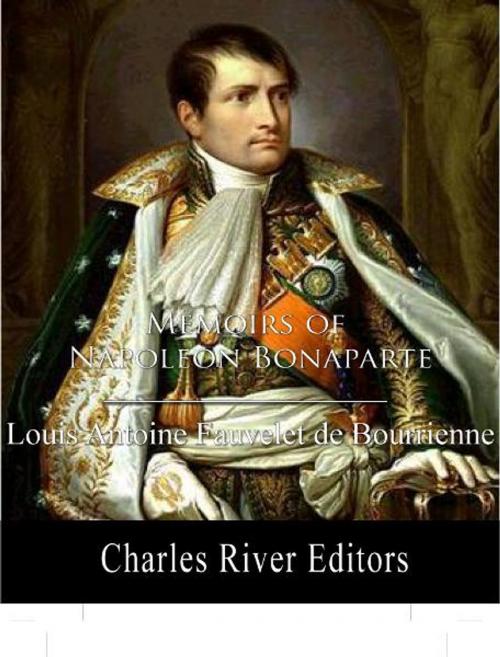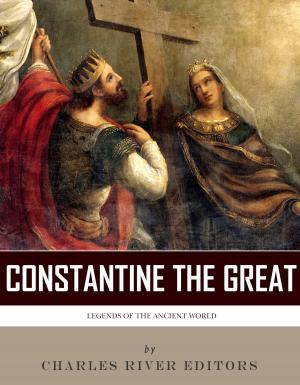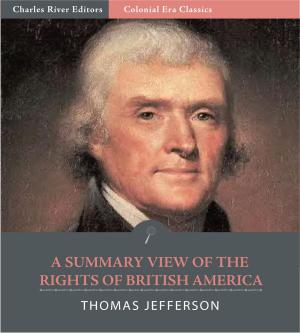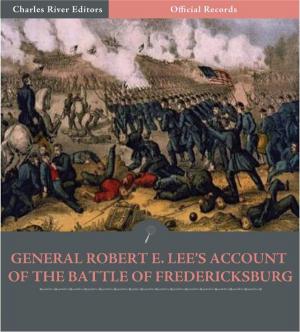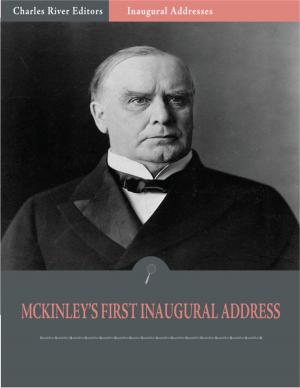Memoirs of Napoleon Bonaparte (Illustrated Edition)
Nonfiction, History, France, European General, British| Author: | Louis Antoine Fauvelet de Bourrienne | ISBN: | 9781619823624 |
| Publisher: | Charles River Editors | Publication: | January 20, 2012 |
| Imprint: | Language: | English |
| Author: | Louis Antoine Fauvelet de Bourrienne |
| ISBN: | 9781619823624 |
| Publisher: | Charles River Editors |
| Publication: | January 20, 2012 |
| Imprint: | |
| Language: | English |
Louis Antoine Fauvelet de Bourrienne was educated at the military school of Brienne in Champagne, where he met young Napoleon Bonaparte and became friends. Bourrienne became a diplomat, traveling to posts like Vienna and Leipzig, but he got back in touch with Napoleon by 1792 during the French Revolution. Eventually, he became a trusted secretary for the soon to be EmperorThough he achieved many things in his career, Bourrienne is best known for drafting the Memoirs of Napoleon Bonaparte, having been close enough to the man for most of the Napoleonic Era to offer people an intimate glimpse of the famous French emperor. Napoleon, of course, needs no real introduction. Napoleon was unquestionably the most influential man of the 19th century, leaving an indelible mark on everything from the strategy and tactics of warfare to the Napoleonic Code that drafted laws across the continent. To defeat Napoleon, the Europeans had to form large coalitions, which would lead to entangling alliances that brought about World War I after Europe was rebuilt following Waterloo and the Congress of Vienna. Napoleons influence on the United States was just as palpable. To finance his endeavors, he struck a deal with President Thomas Jefferson that became the Louisiana Purchase. It was Napoleonic warfare that was used throughout the Civil War, leading to massive casualties because the weaponry of the 1860s was now more advanced than the tactics of 1815. When Napoleon died at St. Helena, he still engendered fear and distaste among the Europeans, but the man and his legacy were admired and even held in awe and high esteem in the United States. This edition is specially formatted with images, original commentary, and a linked Table of Contents.
Louis Antoine Fauvelet de Bourrienne was educated at the military school of Brienne in Champagne, where he met young Napoleon Bonaparte and became friends. Bourrienne became a diplomat, traveling to posts like Vienna and Leipzig, but he got back in touch with Napoleon by 1792 during the French Revolution. Eventually, he became a trusted secretary for the soon to be EmperorThough he achieved many things in his career, Bourrienne is best known for drafting the Memoirs of Napoleon Bonaparte, having been close enough to the man for most of the Napoleonic Era to offer people an intimate glimpse of the famous French emperor. Napoleon, of course, needs no real introduction. Napoleon was unquestionably the most influential man of the 19th century, leaving an indelible mark on everything from the strategy and tactics of warfare to the Napoleonic Code that drafted laws across the continent. To defeat Napoleon, the Europeans had to form large coalitions, which would lead to entangling alliances that brought about World War I after Europe was rebuilt following Waterloo and the Congress of Vienna. Napoleons influence on the United States was just as palpable. To finance his endeavors, he struck a deal with President Thomas Jefferson that became the Louisiana Purchase. It was Napoleonic warfare that was used throughout the Civil War, leading to massive casualties because the weaponry of the 1860s was now more advanced than the tactics of 1815. When Napoleon died at St. Helena, he still engendered fear and distaste among the Europeans, but the man and his legacy were admired and even held in awe and high esteem in the United States. This edition is specially formatted with images, original commentary, and a linked Table of Contents.
